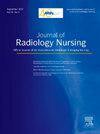Team Relationships and Wellness in Radiology: An Evidence-Based Practice Implementation
Q3 Nursing
引用次数: 0
Abstract
Background
Creating a caring culture can positively impact patient safety and quality of care, and healthcare leaders set the standard for culture change. Compassion satisfaction, compassion fatigue, and burnout have been present in healthcare systems for many years and can influence performance. Interventions are implemented depending on need, context, and evidence. Most research is focused on nurses and physicians. Imaging department leaders and clinicians, who provide care across the healthcare system, also benefit from these interventions. An academic health system imaging department sought implementation of an intervention that would support a culture of caring. The process objective of this evidence-based practice (EBP) project was to implement a small group program for imaging department leaders to improve compassion satisfaction, compassion fatigue, and risk for burnout in this group. The outcome objective was to establish and sustain a culture steering committee for the entire imaging department.
Methods
A 6-month, hourly, interactive course on caring relationship concepts took place February-July 2019. Imaging leaders engaged in facilitated, intentional conversations during each class and were assigned reflection homework for peer feedback. Framework for a culture steering committee was established. A prepost project design was used to compare compassion satisfaction, compassion fatigue, and risk for burnout at pre, post, and 3 months postproject implementation.
Results
Compassion satisfaction remained high and compassion fatigue low at each time point. Risk for burnout showed greater than 20% improvement from baseline to post intervention and sustained improvement at 3 months postintervention. Leaders and clinicians established a culture steering committee focusing on caring relationships.
Discussion
Imaging department leaders engaged in self-care and movement toward creating a culture of caring. Engaging leaders early in the process of change influences success of an EBP implementation. The culture steering committee, focusing on caring relationships, has sustained through the years of the pandemic and continues to date.
放射科的团队关系和健康:基于证据的实践实施
创建关怀文化可以对患者安全和护理质量产生积极影响,医疗保健领导者可以为文化变革设定标准。同情满意度、同情疲劳和倦怠多年来一直存在于医疗保健系统中,并会影响绩效。根据需要、背景和证据实施干预措施。大多数研究都集中在护士和医生身上。在整个医疗保健系统中提供护理的影像部门领导和临床医生也从这些干预措施中受益。一个学术卫生系统成像部门寻求实施一种干预措施,以支持关怀文化。本循证实践(EBP)项目的过程目标是实施一个针对影像科领导的小组项目,以提高该组的同情满意度、同情疲劳和倦怠风险。最终目标是建立和维持整个成像部门的文化指导委员会。方法于2019年2月至7月进行为期6个月、每小时一次的关爱关系概念互动课程。影像领导者在每节课上都参与了便利的、有意的对话,并被分配了反思作业,以获得同伴的反馈。建立了文化指导委员会框架。采用项目实施前、实施后和实施后3个月,比较同情满意度、同情疲劳和倦怠风险。结果各时间点同情满意度保持较高水平,同情疲劳保持较低水平。从基线到干预后,倦怠风险改善超过20%,干预后3个月持续改善。领导者和临床医生建立了一个文化指导委员会,重点关注关爱关系。讨论想象部门领导从事自我照顾和运动,以创造一种关怀文化。在变革过程的早期让领导者参与影响EBP实施的成功。注重关怀关系的文化指导委员会在大流行期间得以维持,并一直延续至今。
本文章由计算机程序翻译,如有差异,请以英文原文为准。
求助全文
约1分钟内获得全文
求助全文
来源期刊

Journal of Radiology Nursing
Nursing-Advanced and Specialized Nursing
CiteScore
0.80
自引率
0.00%
发文量
95
审稿时长
57 days
期刊介绍:
The Journal of Radiology Nursing promotes the highest quality patient care in the diagnostic and therapeutic imaging environments. The content is intended to show radiology nurses how to practice with compassion, competence, and commitment, not only to patients but also to the profession of nursing as a whole. The journal goals mirror those of the Association for Radiologic & Imaging Nursing: to provide, promote, maintain , and continuously improve patient care through education, standards, professional growth, and collaboration with other health care provides.
 求助内容:
求助内容: 应助结果提醒方式:
应助结果提醒方式:


